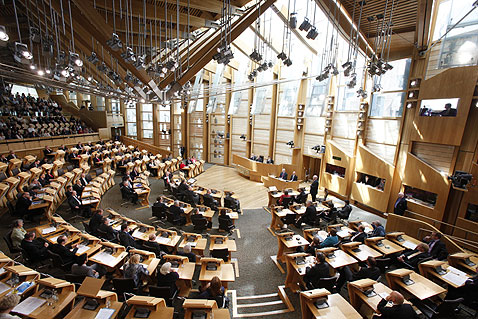Warning: Undefined array key "ssba_bar_buttons" in /usr/home/movgwifi/public_html/yesedinburghwest.info/wp-content/plugins/simple-share-buttons-adder/php/class-buttons.php on line 602
Warning: Undefined array key "ssba_bar_buttons" in /usr/home/movgwifi/public_html/yesedinburghwest.info/wp-content/plugins/simple-share-buttons-adder/php/class-buttons.php on line 602
Warning: Undefined array key "ssba_bar_buttons" in /usr/home/movgwifi/public_html/yesedinburghwest.info/wp-content/plugins/simple-share-buttons-adder/php/class-buttons.php on line 602


Since the Scottish Parliament reconvened in 1999, decision making power is now split between MPs in London and MSPs in Edinburgh. Issues decided at Westminster are said to be ‘reserved’ while issues decided by the Scottish Parliament are ‘devolved’.
A limited level of further devolution has taken place since 1999, following the Scotland Acts 2012 and 2016. This has given Scotland some limited powers over taxation, social security, elections in Scotland and some employment services. We will use these new powers to better serve the interests of all of Scotland: expanding our economy and lifting people out of poverty.
Reserved to Westminster
- Defence
- Foreign policy
- The Constitution
- Taxes (amounting to around 70% of the total raised in Scotland)
- Trade and industry
- Employment
- Benefits and social security (amounting to around 85% of the Scottish benefit bill)
- Pensions
- Nuclear energy, oil, coal, gas and electricity
- Immigration
- Broadcasting and telecommunications (including broadband)
- Consumer rights
- Data protection
Devolved to Holyrood
- Anything not specifically reserved to Westminster
- Agriculture, forestry and fisheries
- Education and training
- Environment
- Health and social services
- Housing
- Some Income Tax
- Law and order
- Local government
- Sport and the arts
- Tourism and economic development
- Many aspects of transport
- Air Passenger Duty, Land and Buildings Transaction Tax and Landfill Tax
- Some aspects of social security, including disability benefits, Carer’s Allowance, Winter Fuel Allowance.
In an independent Scotland, it will be the people of Scotland, and their Scottish Government, who will have all the powers, and decide the future of our Democracy.
Yes Edinburgh West has a website, Facebook, Twitter, National Yes Registry and a Library of topics on Scottish Politics, including Independence and Democracy and Politics.



